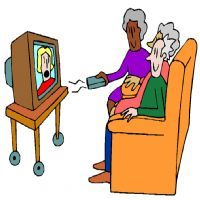 Esta semana as turmas do 1o ano tiveram a oportunidade de acompanhar o uso de um novo app em sala de aula. O tema da II unidade era voltado para a questão do aquecimento global - GLOBAL WARMING e o efeito estufa - GREENHOUSE EFFECT. Para chegarmos até lá usei da interdisciplinaridade envolvendo Geografia e Física por meio do aplicativo SOLAR WALK (pago nos sistemas IOS e ANDROID).
Esta semana as turmas do 1o ano tiveram a oportunidade de acompanhar o uso de um novo app em sala de aula. O tema da II unidade era voltado para a questão do aquecimento global - GLOBAL WARMING e o efeito estufa - GREENHOUSE EFFECT. Para chegarmos até lá usei da interdisciplinaridade envolvendo Geografia e Física por meio do aplicativo SOLAR WALK (pago nos sistemas IOS e ANDROID).Como tínhamos bastante material de apoio no livro didático (UPGRADE da Richmond), partimos por uma viagem no Solar System conhecendo todos os planetas e astros bem como o papel do grande rei - The SUN.
Com o app SOLAR WALK "é possível ver todo o sistema solar, dar zoom e olhar cada planeta individualmente, com direito a informações sobre as medidas e a composição. Cada planeta é exibido com uma grande quantidade de informações. São informações gerais sobre o planeta seguido por uma série de fatos e números que adicionam uma leitura interessante. Todos os planetas são exibidos em tempo real e a com a sua localização real para dar uma visão totalmente exata de onde estão as coisas, onde as coisas foram e onde as coisas estão acontecendo no espaço. (...) Um exemplo de como detalhado esta aplicação é pode ser visto na exibição dos planetas. Todos os planetas são exibidos com a iluminação de acordo com o horário e a posição correta em relação ao sol' relata a crítica do site TechTudo.

UMA VISITA À AMAZÔNIA - As turmas do 2o ano também têm a II unidade voltada para a questão ambiental e o efeito estufa. Nesse ano,o assunto estava concentrado no AMAZON BIOME (foto à direita). Com o app visitamos a área florestal e o aluno pode acompanhar o quão grande é a dimensão da nossa floresta. De quebra, o app forneceu ainda dados com vídeos bem ilustrados sobre o ciclo das estações levando-o assim a concluir a temporada de chuvas na região amazônica e como o efeito estufa pode alterar de forma significativa todo aquele bioma daqui a alguns anos.
SOLAR ECLIPSE - Já as turmas do 3o ano viram de perto como ocorre um eclipse solar. Justamente no dia da aula houve o primeiro eclipse do gênero em 2014, porém apenas a região da Austrália pode vê-lo melhor. A turma ainda conferiu uma vídeo-demonstração e analisou um texto (foto à esquerda) sempre se reportando a vários conteúdos que já havíamos estudado anteriormente para reforçar a aprendizagem.
A aula foi no laboratório de Informática do CEPJO. Material:datashow e Ipad.
+ DICAS: Ainda de acordo com o TechTudo, com o app você professor de outras disciplinas pode descobrir que:
1 - É possível dar um zoom absolutamente mágico para fora para e ver a galáxia inteira;
2 - Definir qualquer data desejada, incluindo até mesmo minutos e fazer uma viagem através do espaço e do tempo;
3 - Ver vídeos explicativos sobre os fenômenos da Terra;
4 - Ver em tempo real as trajetórias dos satélites artificiais da Terra;
5 - Descobrir os nomes das maiores cidades da Terra, bem como os pontos turísticos da Lua, Marte e Vênus;
6 - Saber quase tudo sobre todos os planetas do nosso sistema solar, como informações gerais, seu nome, sua massa, raio, distância ao sol, estrutura interna com imagens e as missões cientificas;
7 - Explorar todas as luas e seus planetas. Apenas selecione um planeta como a Terra, Saturno, Júpiter, Marte ou Urano e observe quantas luas têm e sua trajetória ao redor do planeta. Selecione uma das luas e descubra tudo sobre ela.
Quer mais informações de como conectar seu tablet ao projetor, envie e-mail para cnnpv@yahoo.com.br para trocarmos informações ou poste aqui um comentário.








 You have to speak louder he can't hear well.
You have to speak louder he can't hear well.  Tom studied hard, he failed the test.
Tom studied hard, he failed the test. They like to watch soap operas films on TV.
They like to watch soap operas films on TV.  Jim is happy he won the race.
Jim is happy he won the race. Henri is worried he is late for an important meeting.
Henri is worried he is late for an important meeting.  She bought vitamins forgot to buy aspirin.
She bought vitamins forgot to buy aspirin.

